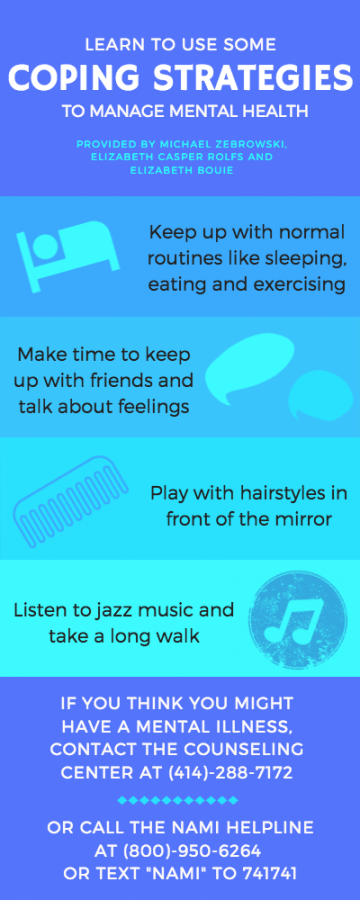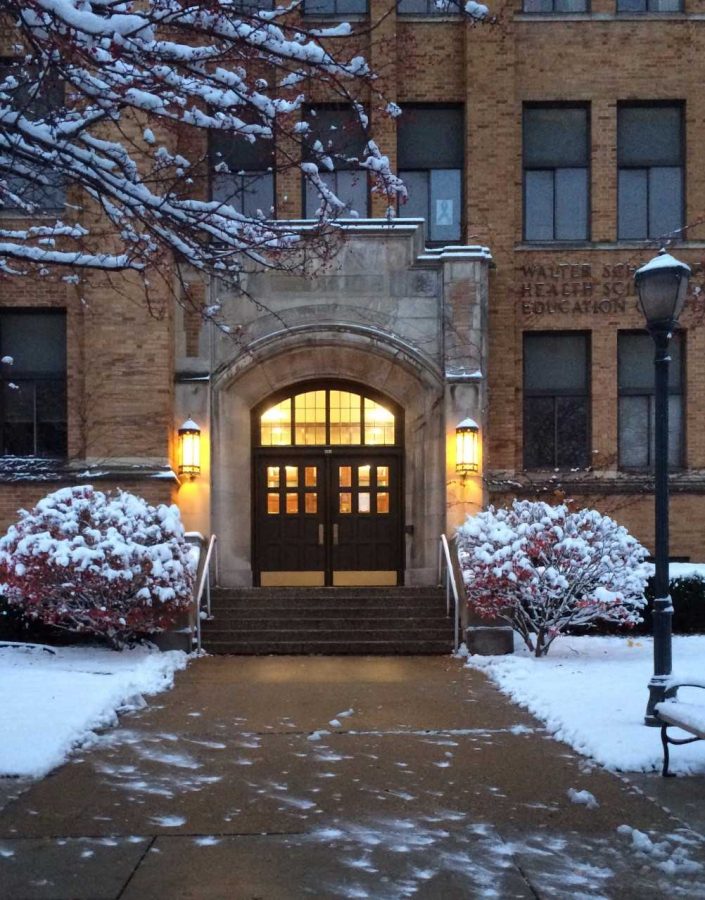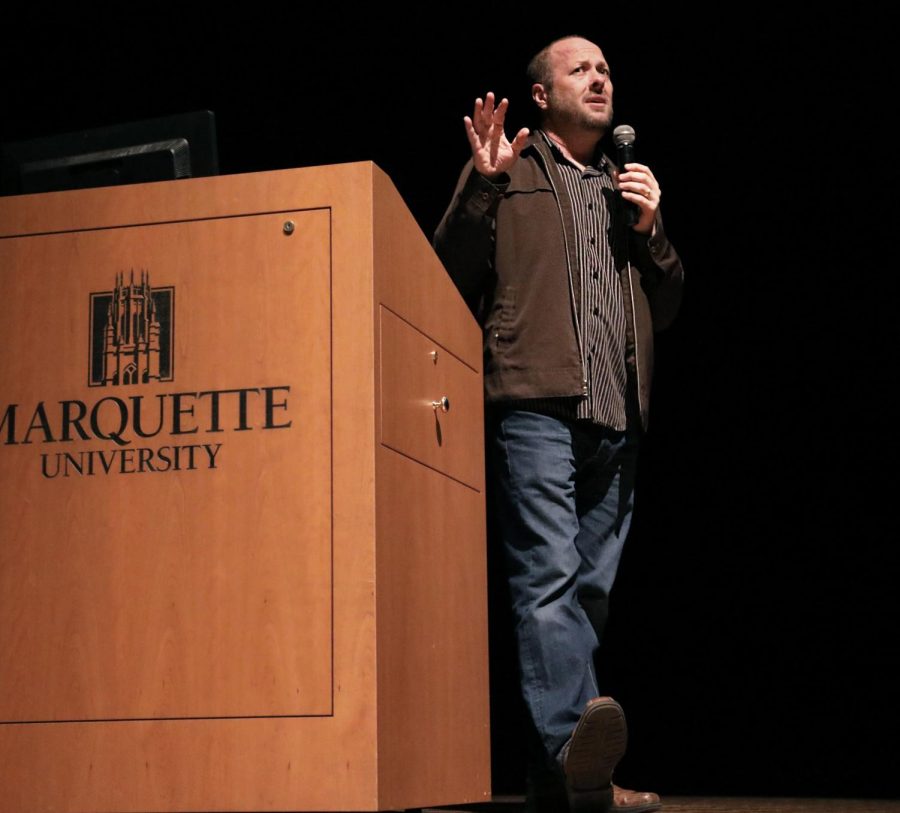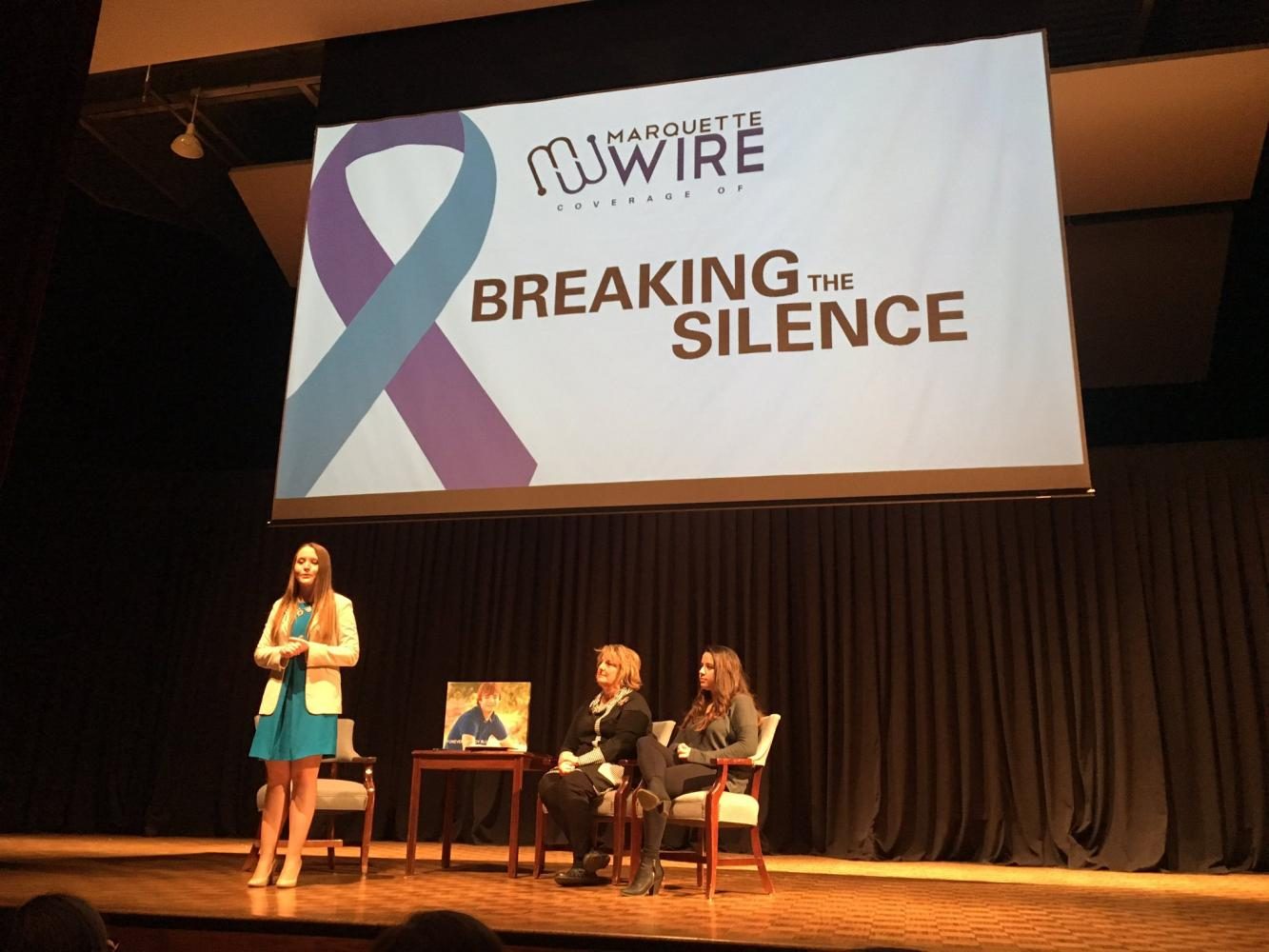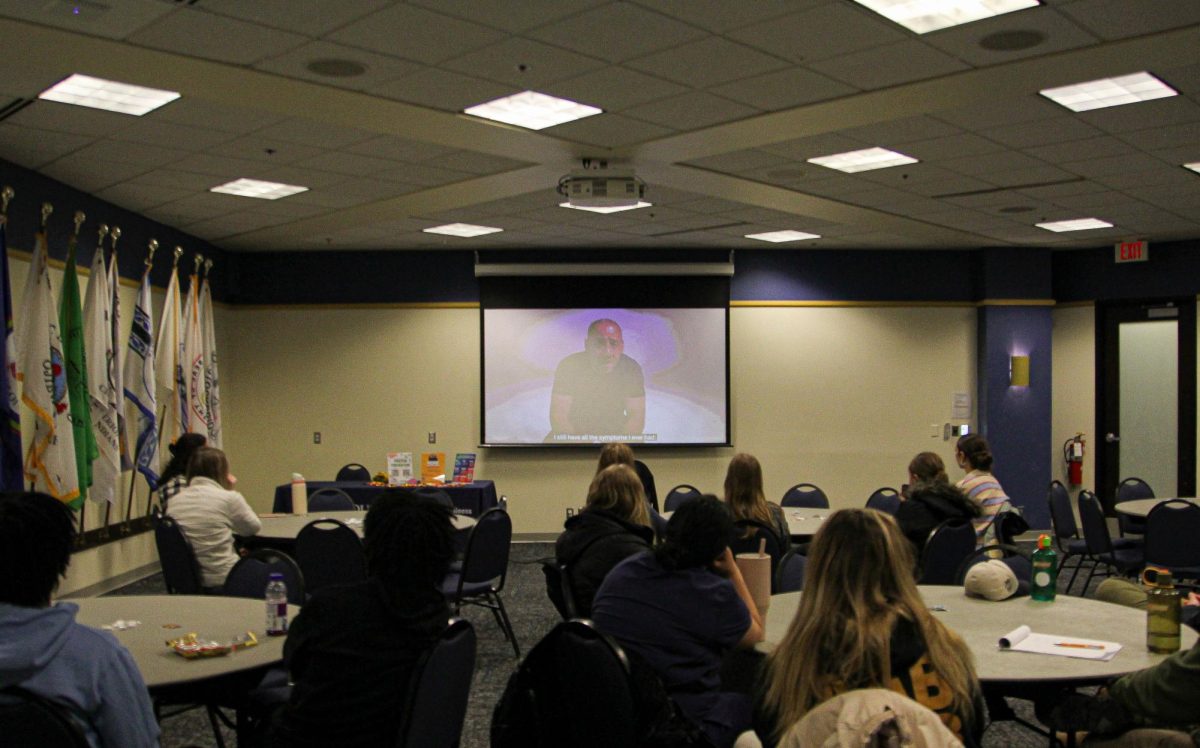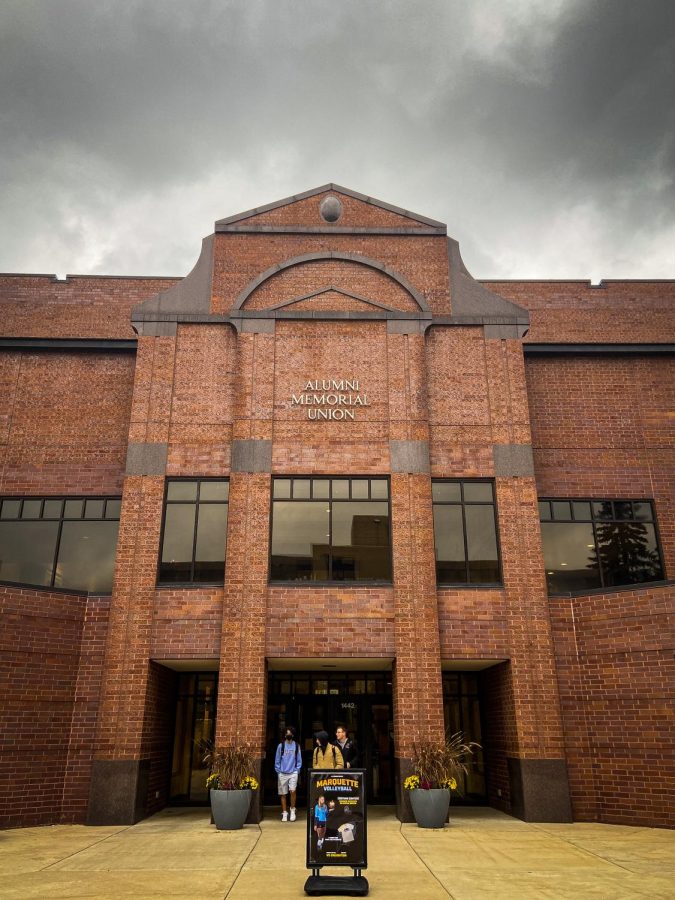Elizabeth Casper Rolfs experienced mental illness from a young age. At age 14, she remembered being severely depressed, feeling lonely and sad often. By age 18, she cried all the time. And by age 23, she experienced her first nervous breakdown and was admitted to a psychiatric hospital.
But Casper Rolfs said her mental illness did not stop her from achieving her goals. She has three children, wrote two books and has a small business for women’s support groups.
Now a member of the National Alliance on Mental Illness, Casper Rolfs opened up about her experiences Nov. 15 in the Alumni Memorial Union to offer hope to students who are struggling. The event, called “In Our Own Voice,” was part of the Department of Counselor Education and Counseling Psychology’s 2017-‘18 Colloquium Series.
“I care about speaking to other people,” she said. “I know that for my own self, it’s been a long journey. I’ve been in therapy for 40 years and I’ve learned a lot and kept improving my ability to take care of myself, say no and be nice to myself – love myself, actually.”
Mental illness is not something that merely goes away with time, Casper Rolfs said, but individuals can learn to cope with their condition.
The other speaker at the “In Our Own Voice” event, Elizabeth Bouie, endured mental health challenges of her own after her mother died in June 2011.
“That broke my heart,” she said. “Me and my mom were really cool. I was her shadow.”
Bouie said she wants students to realize they have hope and are not alone in their struggles.
“There’s other people out there just like you and you just can’t see it,” she said.
Dr. Michael Zebrowski, a licensed psychologist and director of the Counseling Center, said this time of the year seems to be when students are struggling the most with mental health.
“It’s not necessarily about the holidays, because statistically that’s not necessarily true that the holidays are so stressful,” he said. “But I wonder if it’s a combination of the season as well as first-time finals for some college students.”
Zebrowski said the transition to college, paired with existing vulnerability to mental illnesses, could trigger mental health issues. Academic pressures can be another cause for mental health challenges, he said.
Despite the challenges associated with finals week, Zebrowski said students should try to maintain routines and basic living activities.
“What’s troublesome is that all the ways students use to help themselves feel better start to fall to the wayside,” he said. “They might stop exercising, they might not have time to keep up with friends, maybe they start skipping meals, they’re probably sleeping less – so all those things make them more susceptible to stress and even a potential mental health problem.”
Casper Rolfs said self-care is the most important thing for college students.
“Pamper yourself – be really gentle and easy with yourself,” she said. “Do things like just stand in front of the mirror and play around with hairstyles for a half an hour. We just don’t allow ourselves to have time to do that. And putting hand cream on and foot cream on – things like that – (and) taking little naps.”

